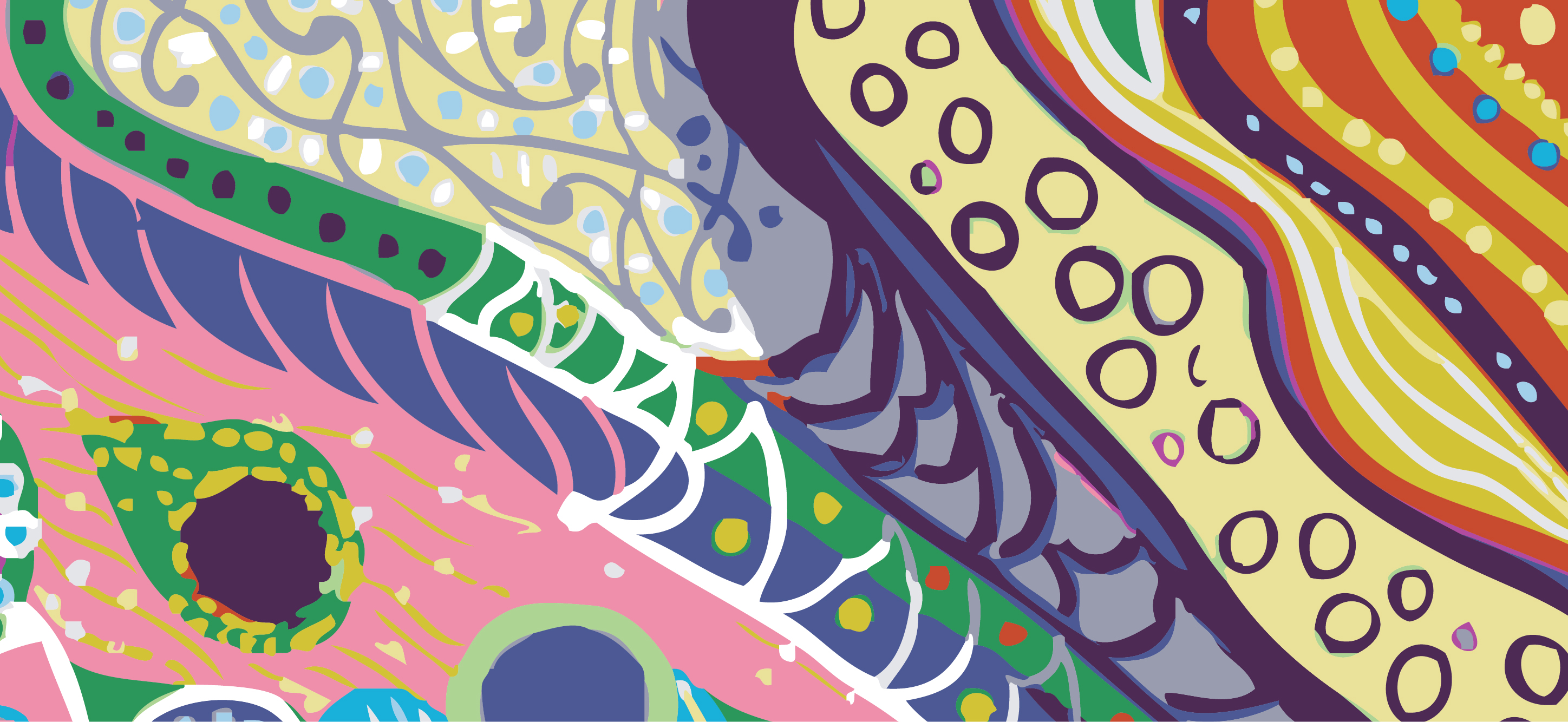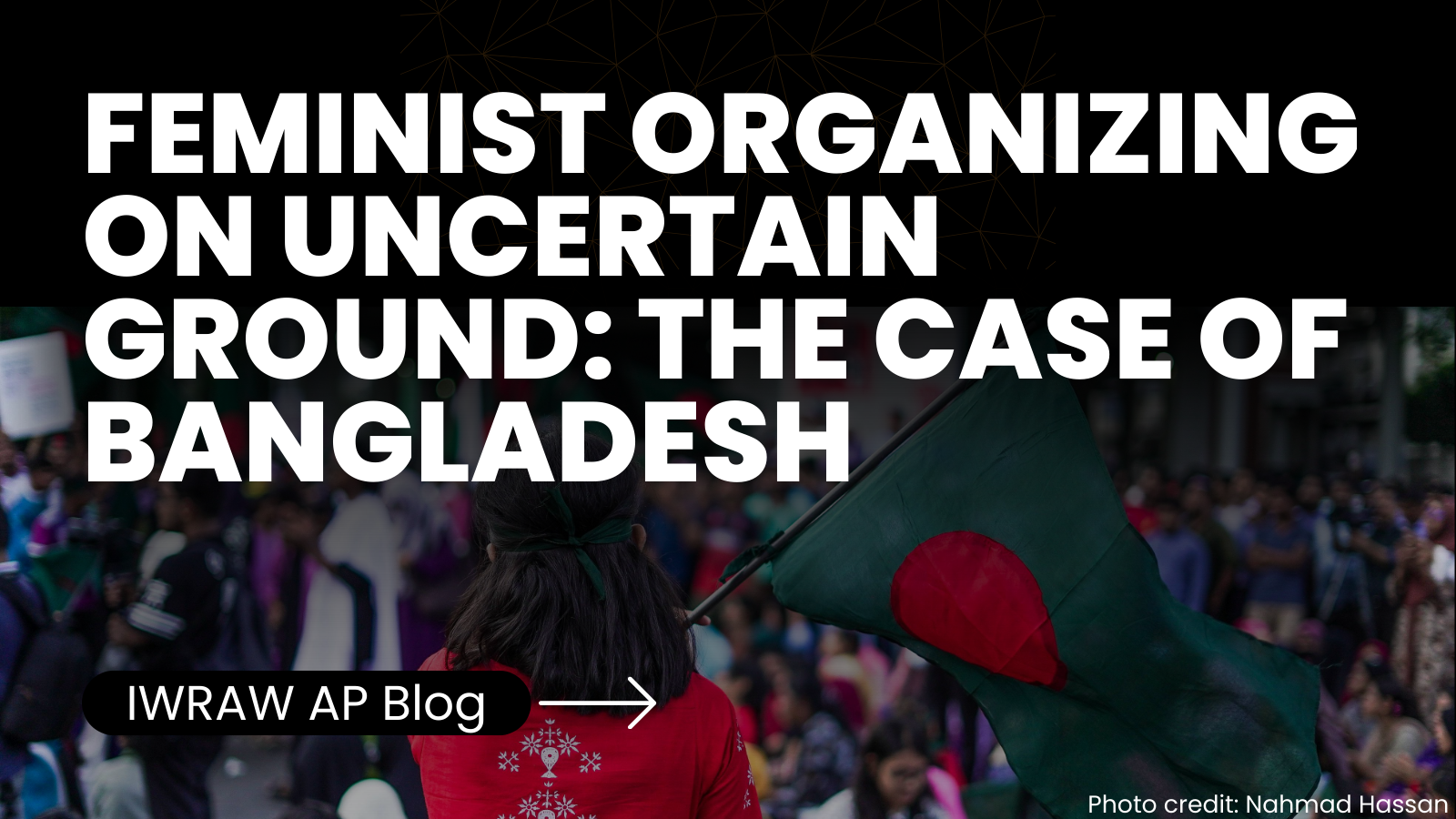
IWRAW Asia Pacific has been a consortium lead of the Women Gaining Ground (WGG) project in partnership with CREA and Akili Dada since 2021. WGG is being implemented in collaboration with 16 in-country partners (in Bangladesh, India, Kenya, Rwanda, and Uganda), focusing on addressing gender-based violence (GBV) and increasing the leadership of young women and women with disabilities.
We are resuming our WGG’s monthly blog series in 2025, with a blog by Hameeda Syed, WGG Fellow, reflecting on the long road to political governance and change in Bangladesh after the fall of Awami League due to nation wide protests spearheaded by the youth in the country .
Bangladesh sits at the heart of these struggles. In 2024, a student-led uprising over civil service quota reforms escalated into mass protests. The High Court had reinstated a policy reserving 30% of government jobs for descendents of freedom fighters, despite high youth unemployment. What began as a fight against the quota system quickly grew into a broader movement for democracy, fueled by frustration over political repression and economic hardship. The government’s violent response only intensified the protests. Prime Minister Sheikh Hasina, in power for over a decade and accused of vote rigging and political violence, fled the country. An interim government, led by Nobel Laureate Dr. Muhammad Yunus, was formed. The transition created opportunities for legal and policy reforms but also deepened political tensions, further endangering structurally excluded groups.
How have Bangladesh feminist organizations navigated their work in times of deep uncertainty? What is the process of imagining and shaping a new government look like?This curiosity is answered by Samina Yasmin, Misti Ashrafun Nahar, and Rume Jahan, who represent different facets of the feminist movement in Bangladesh. They reflect on critical issues in feminist and grassroots organizing: how political movements influence gender rights, how activists access decision-making spaces, how feminist movements adapt to political transitions, and how their specific areas of focus – such as electoral inclusion, disability justice, or feminist policymaking – are shaped and shape-shifting governance structures.
Samina Yasmin, Director of Strengthening Movements and Leadership at Bonhishikha, describes the worsening climate for gender rights, with growing violence against marginalized communities, particularly transgender and Indigenous groups. “Far-right groups, religious fundamentalists, and anti-gender rights factions have become visibly active, with online attacks through technology-based violence, incidents of mob violence, and ongoing protests affecting the pace of reforms,” she says.
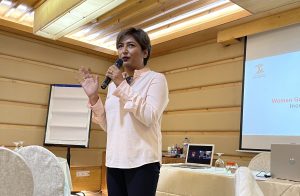
Samina Yasmin, Director of Strengthening Movements and Leadership at Bonhishikha, leading the WGG Induction Meeting in Dhaka, May, 2022.
Civil society organizations continue to advocate for legal reforms, but Samina notes, “The uncertainty makes it difficult to know how much we can achieve before the next elections.”
Her responses, in the backdrop of over 206 reported cases of violence against women last month, show the challenge of keeping gender rights a priority for the interim government “without further escalating tensions or inciting additional violence”.
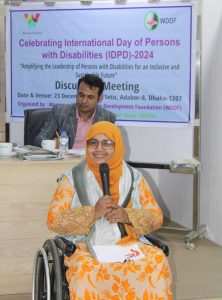
Misti Ashrafun Nahar, founder and Executive Director of the Women with Disabilities Development Foundation (WDDF), speaks about the importance of including disability perspectives in a discussion meeting, December 2024.
For Misti Ashrafun Nahar, founder and Executive Director of the Women with Disabilities Development Foundation (WDDF), the situation is even more critical for women and girls with disabilities.
She shares a recent case on 3rd February, in Chhatravati, near Dhaka, in which two hearing-impaired girls were raped inside their home. “Even private spaces are not safe, especially for young women with disabilities,” she says. Her organization has been advocating for disability justice, women’s rights, and political participation with six reform commissions, which include constitutional reforms, and the Women Commission. Her experience reveals the tendency in political transitions to overlook deeply marginalized groups and their intersecting experiences in policy discussions, lengthening the fight for inclusion.
Meanwhile, Rume Jahan, Volunteer Coordinator of WGG Naripokkho, Executive Committee Member at Naripokkho, and current Media Secretary pointed to the newly established Women’s Affairs Reform Commission as an important development. “For the first time, we have a commission explicitly focused on gender equality reforms, led by feminist activists and founder of Naripokkho, Shireen Huq,” she says. “This is a moment of opportunity, and it shows positive engagement from the interim government.” Her reflections show how institutional engagement can be a strategic space for feminist interventions.
One of the biggest challenges the feminist movement has faced in this transition is delays. Samina explains, “From mid-July to October of 2024 no one was in the right mindset to engage in anything else. Some of our participants were directly involved in the movement and sustained injuries, while others witnessed brutality firsthand. The rest of us also struggled with our mental well-being. Addressing this crisis became our immediate priority. We also received numerous individual messages of distress, and some members of our extended constituency and network faced security threats during that phase that needed urgent support. We responded using our own capacity and connections.”
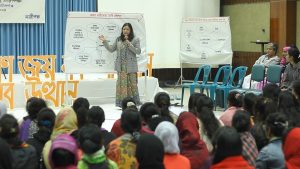
Rume Jahan, Volunteer Coordinator of WGG Naripokkho, Executive Committee Member at Naripokkho, and current Media Secretary, facilitating the Annual Gathering of 100 Young Leaders, December 2024.
In such times of deep endurance, feminist and social justice movements have had to rethink their strategies. Rume points out that movement-building needs to balance both street-level activism and institutional advocacy. “We have always protested in the streets,” she says. “But now we are also making direct policy recommendations. We organised roundtable discussions at the national level where government figures joined, heard, and discussed opinions about women’s health issues, about the violence against women, and communal harmony.”
Misti Ashrafun Nahar emphasizes the importance of securing legal guarantees for disability rights. “Since July 2024, we have submitted recommendations to the electoral reform commission on increasing participation of young girls and women with disabilities through special reservations in the national parliament and at local levels,” she says. “We want to ensure that women with disabilities can participate in formal political spaces.” Her organization, which is advocacy-focused, has also organised workshops with the constitutional reform commission to incorporate disability, inclusion, and justice in the constitution.
Securing the future of feminist movements means engaging with young people as a core strategic component. Samina notes, “Many young people believe that political participation means joining a party. We taught them that activism goes beyond electoral politics.” Her organization convened workshops on political polarization, power structures, and youth leadership.
“We need informed young leaders,” she says, “who can mobilize their communities without being co-opted by party politics.”
Misti Ashrafun Nahar has observed a shift in advocacy when engaging with the young movements. “Young people with disabilities are becoming more vocal,” she says. “For years, they were sidelined in activism, but now they are pushing for representation in electoral politics. They are very eager to see what will happen during this period.”
Taking a leaf out of young movements, Rume’s organization Naripokkho has used this period to engage with student leaders, and push for women’s voices in policy-making spaces. She believes adaptability is key. “We must be ready to change our strategies,” she says. “This moment allows us to expand our networks, build stronger coalitions, and bring feminist perspectives into the national conversation.”
Bangladesh’s future rests on its leaders. The interim government has received recommendations to increase reservations of parliament seats for women, from 14% to 50%. Feminist movements continue to build power despite the challenges ahead, engaging with the interim government, and centering the voices who are yet to be represented. It is clear that the push for reform has not stopped, but only diversified.
In answering the curiosity around organizing, the leaders implement the heart of every feminist movement in times of uncertainty: we will not retreat. Beyond survival, movement-building is about shaping a more just and inclusive future for Bangladesh.
———
Hameeda Syed (they/she) is a journalist, gender consultant, and co-founder of Dignity in Difference (DiD), an organization resisting digital violence through tools, research, and advocacy in South Asia. At DiD, they head programs and partnerships centering on and enhancing the experiences of minority communities in online spaces through narrative change. They are based in New Delhi, India.

